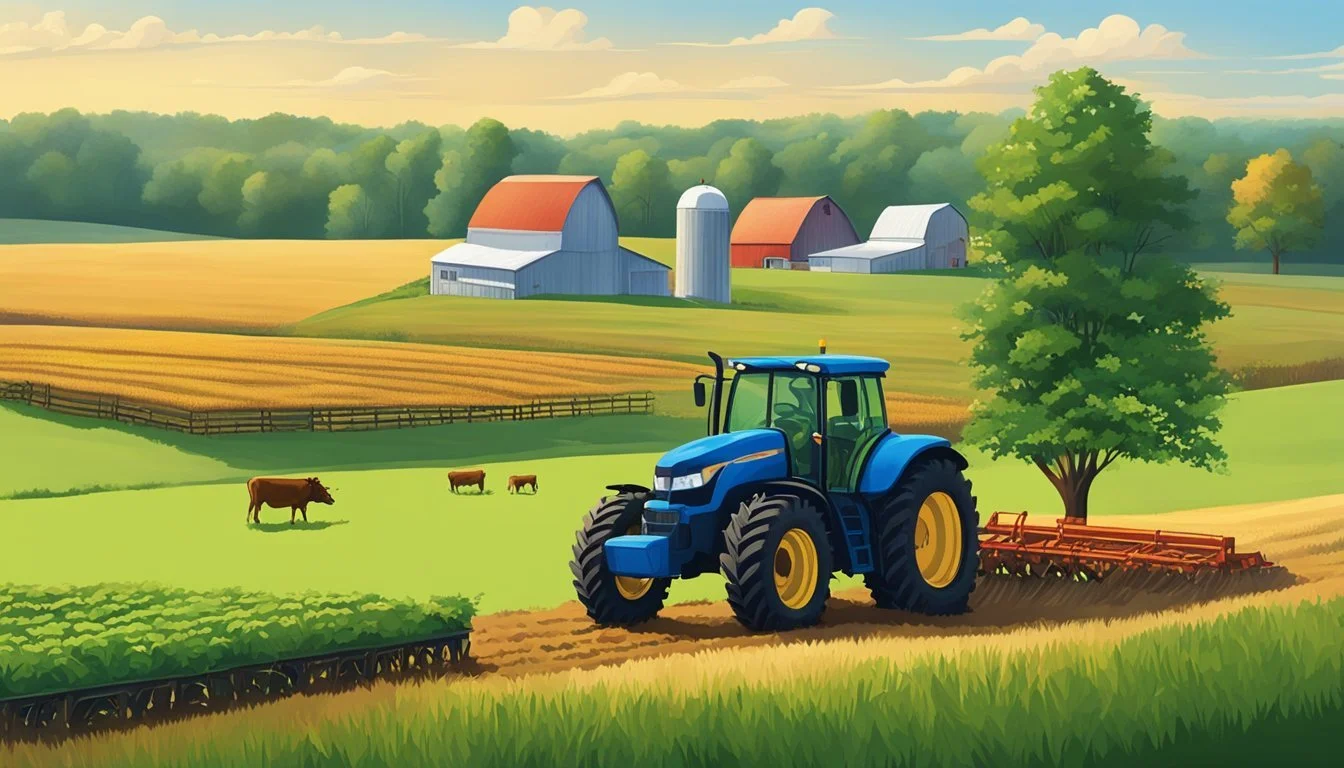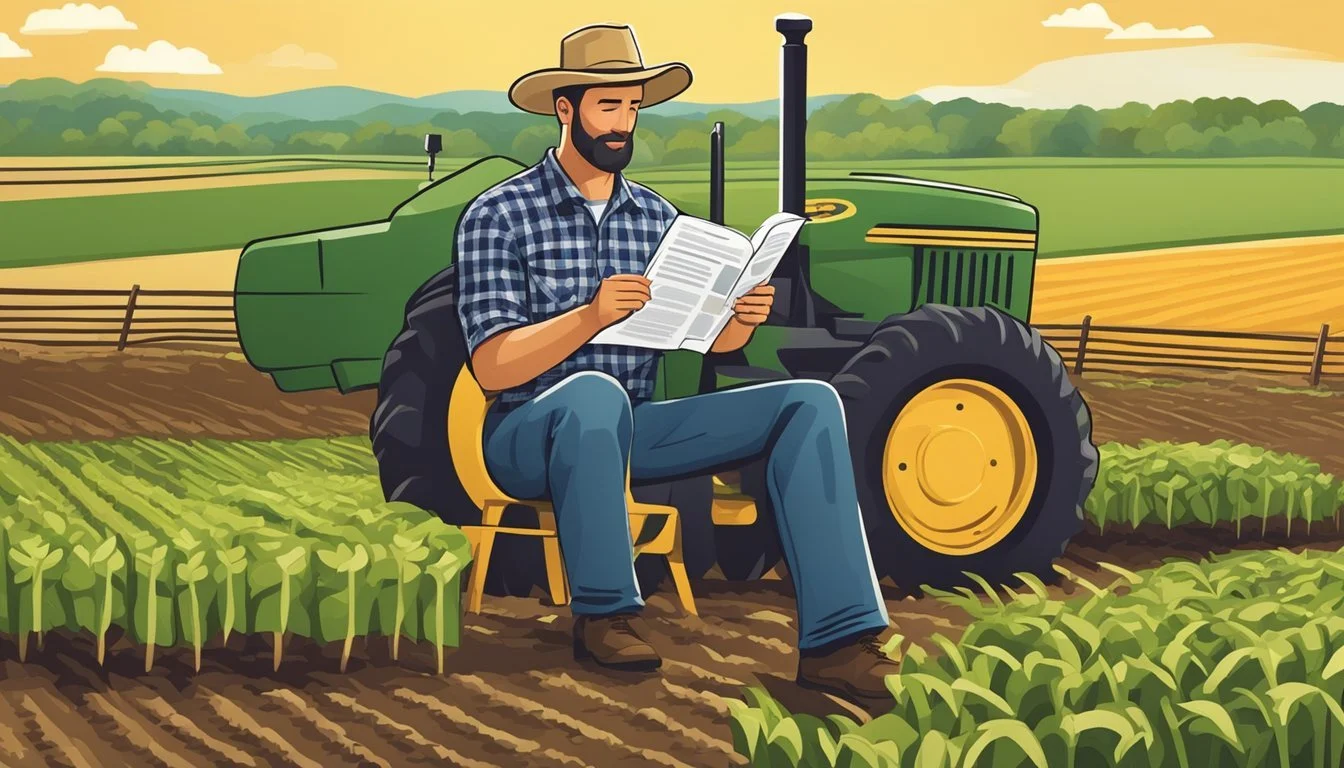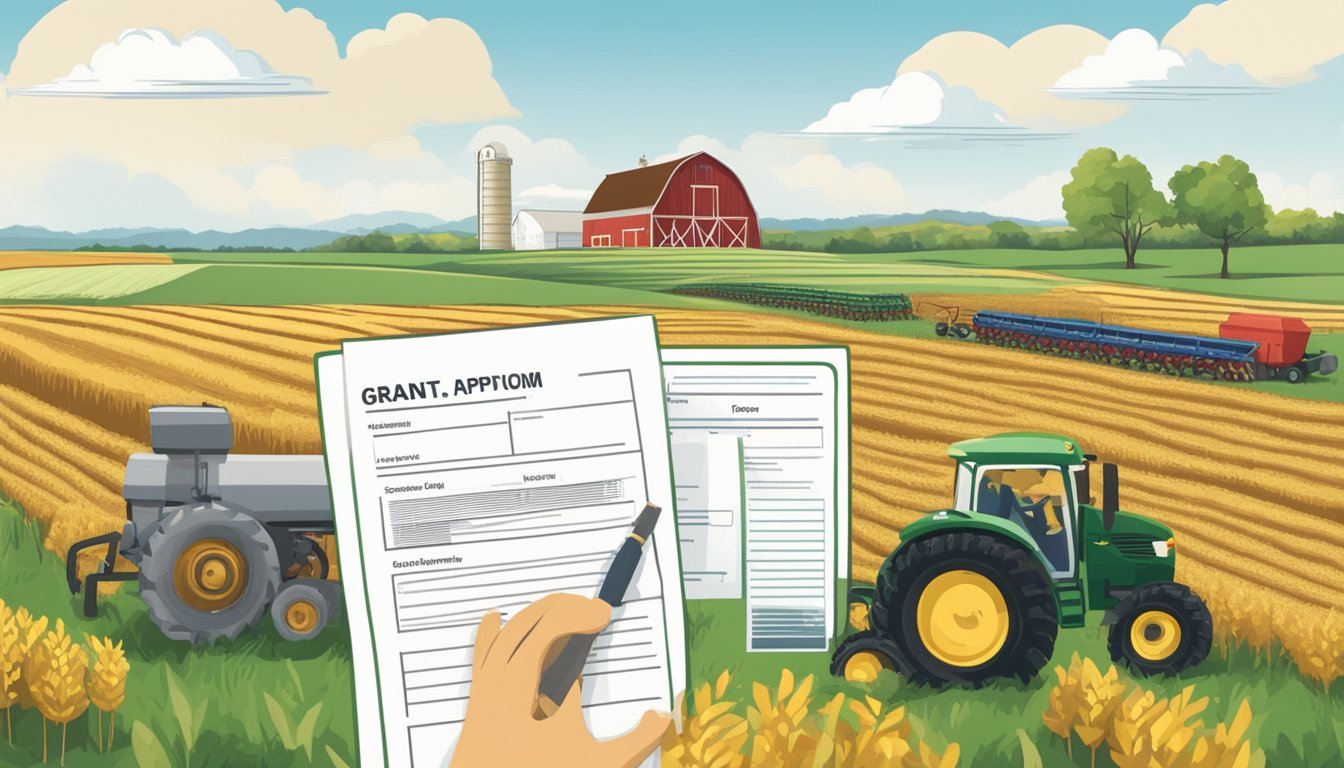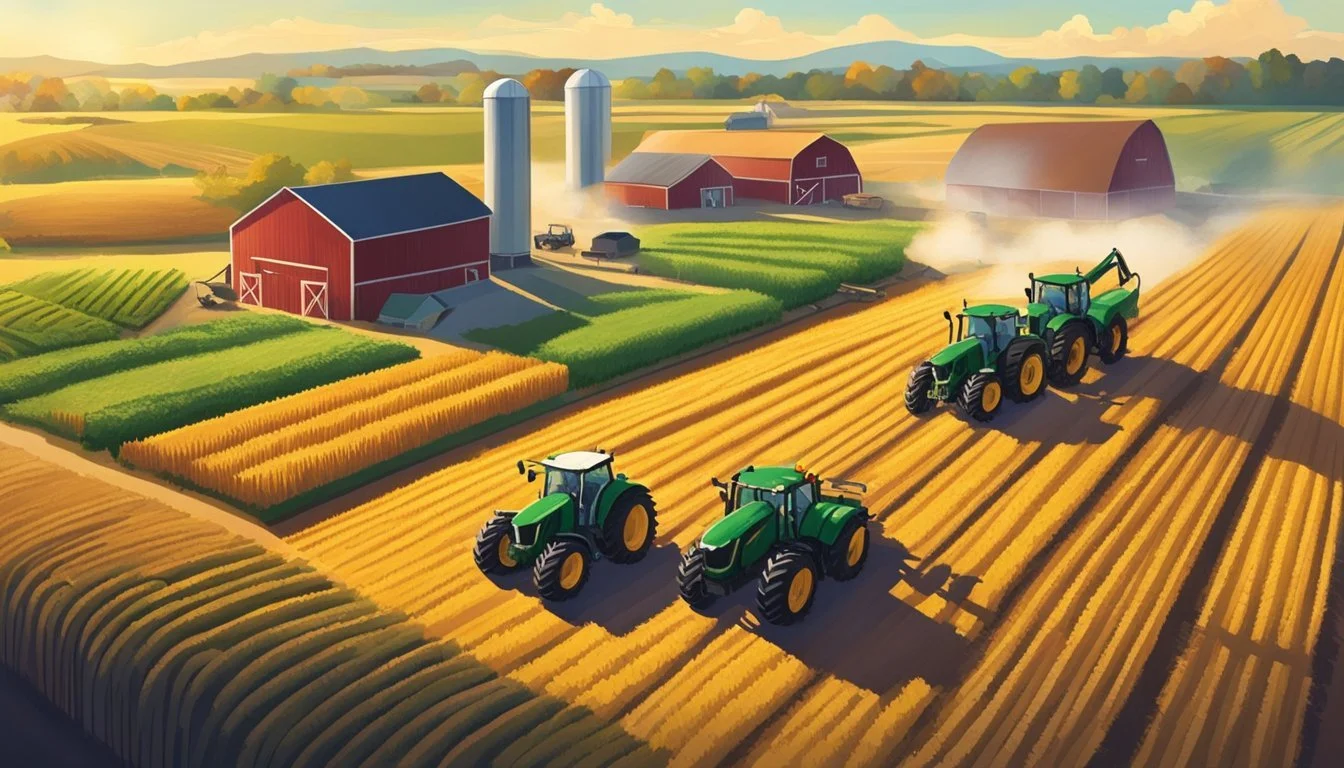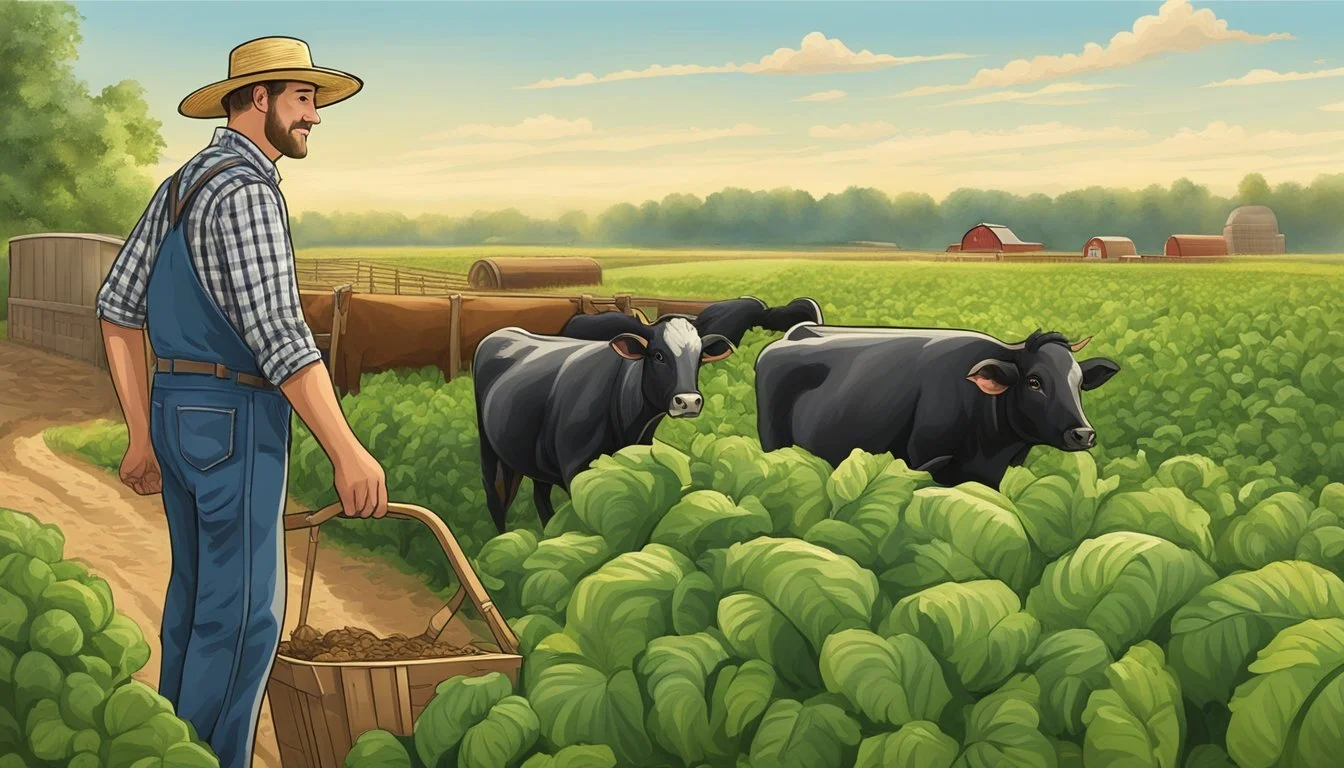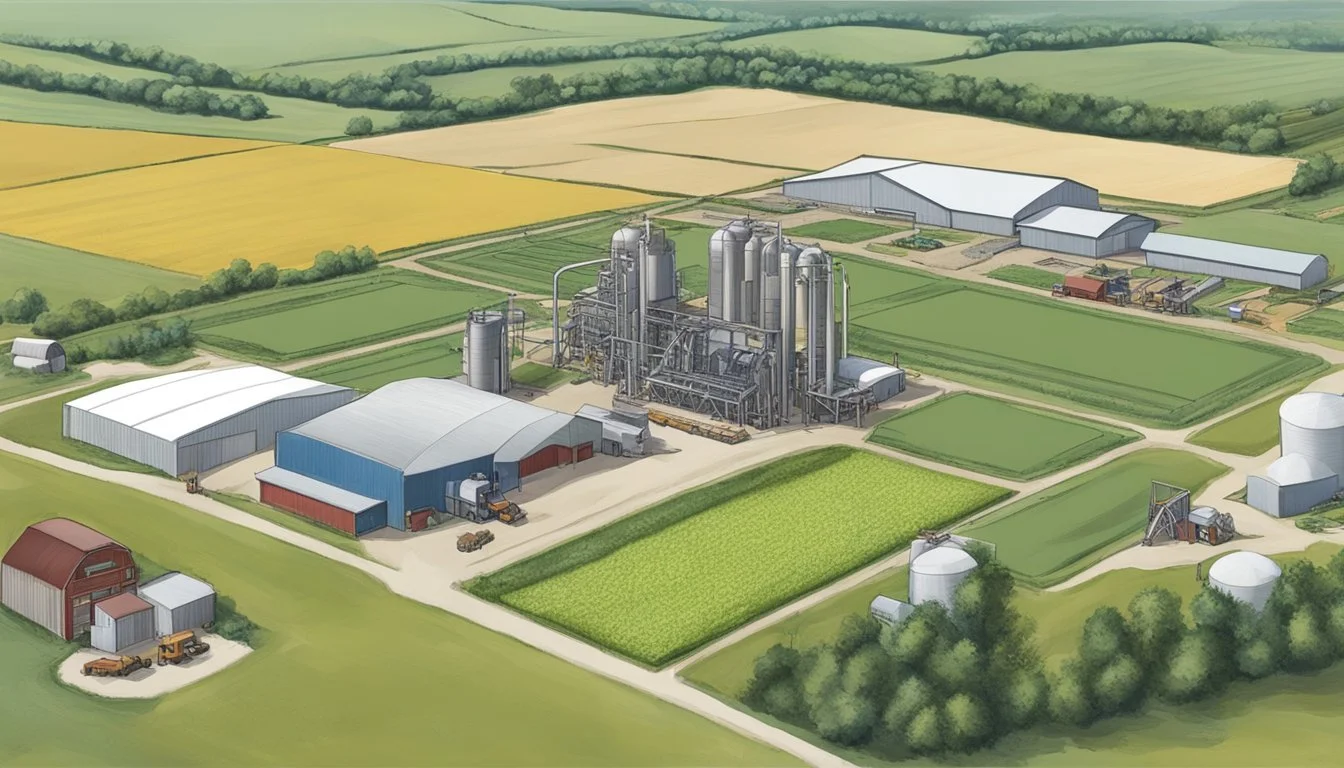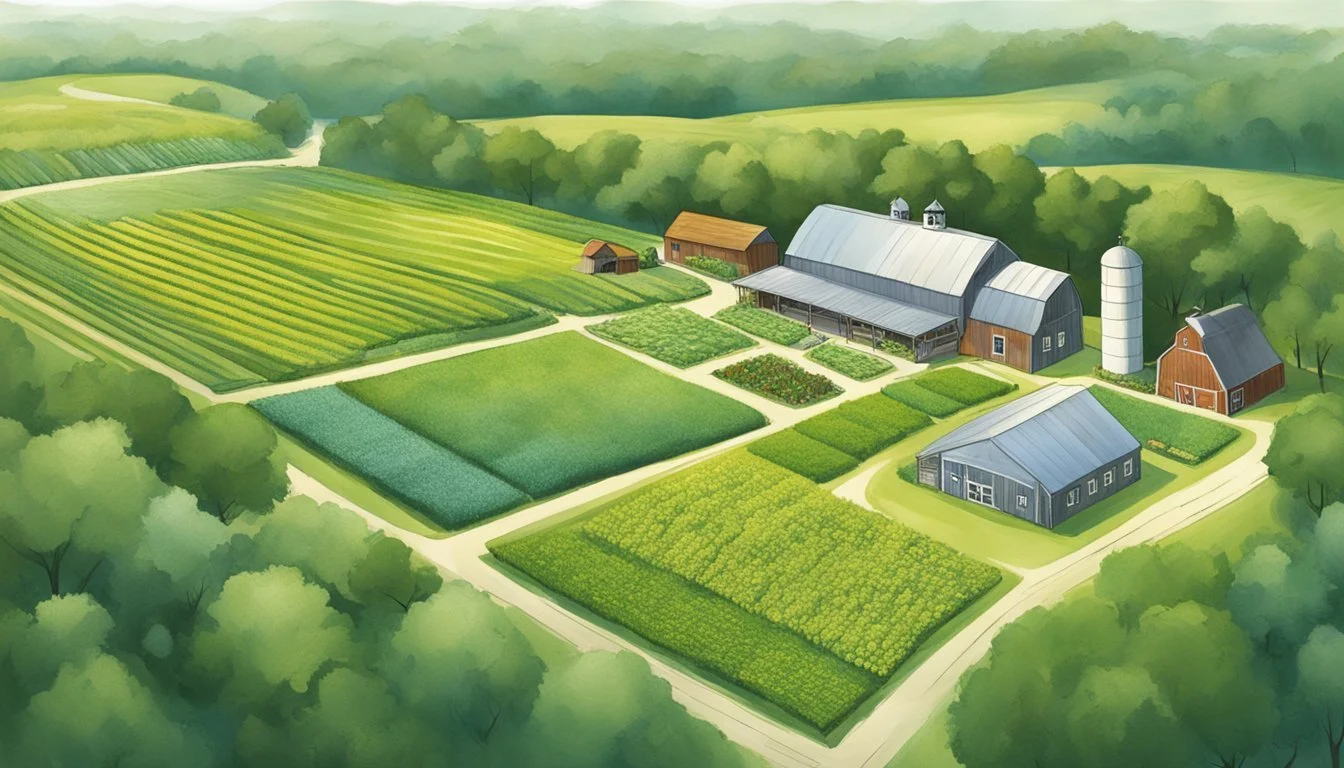Farming Grants Indiana
Navigating Opportunities for Agricultural Funding
Indiana stands as a vibrant hub for agriculture, with the sector playing a pivotal role in the economic and social fabric of the state. Recognizing the critical importance of supporting this industry, a variety of grants and funding opportunities are available to Indiana farmers. These financial aids are designed to promote growth, sustainability, and innovation in agriculture. The aim is to provide farmers, ranging from seasoned agriculturalists to beginning ranchers, with the necessary resources to scale up operations, invest in new technologies, and ensure environmental stewardship.
The United States Department of Agriculture (USDA) offers several programs, including loans and grants that cater to the distinct needs of the farming community. Notably, the USDA Farm Service Agency (FSA) is instrumental in delivering farm loans, which are essential for buying land, equipment, or even for operational costs. Furthermore, programs like the Renewable Energy Systems and Energy Efficiency Improvement loans and grants (REAP) encourage farmers to transition to more sustainable practices by implementing renewable energy and energy-efficient upgrades.
On the state level, initiatives such as the Indiana State Department of Agriculture (ISDA) offer a suite of grants that empower local agriculture and agribusinesses. With economic development identified as a priority, these grants also cover areas such as agricultural education, aiding the next generation of farmers in acquiring the knowledge and skills they need to thrive in this dynamic industry. These combined efforts from federal and state entities underscore a commitment to fortifying Indiana's agriculture through considered investment in its growth and development.
Understanding Farming Grants in Indiana
Indiana is proactive in supporting its agricultural sector, providing a range of grants to enhance farming practices, bolster infrastructure, and promote sustainable operations. Entities seeking grants should be equipped with knowledge of the various programs available to support their agribusiness ventures.
Grants for Farm and Food Folks offered by Partners IN Food and Farming prioritize farm animal welfare and the expansion of humane farming practices. They also support the capital and operational growth of farms in the region. For more detailed information, farmers should contact the associated program directors or attend the relevant webinars.
The Specialty Crop Block Grant (SCBG) and the Resilient Food Systems Infrastructure Program (RFSI) are prominent grants administered by the Indiana State Department of Agriculture (ISDA). These grants are designed to empower specialty crop production and resilient infrastructure within Indiana's food system. Applicants may apply through ISDA's online grants management portal for ease and efficiency.
Education also forms a key component of the grant initiatives, with programs offering comprehensive guidance on application processes via informational webinars.
Value Added Producer Grants (VAPG)
Focus: Support for producers looking to add value to their products
Funding Available: Up to $75,000 for Planning Grants, up to $250,000 for Working Capital Grants
Administered as part of the Local Agriculture Market Program (LAMP)
Another critical grant is the Rural Cooperative Development Grant Program which seeks to develop rural cooperatives, well-aligned with business growth in the agricultural sector.
Entities interested in conservation efforts may explore the Farm Service Agency (FSA) programs, which are a part of the USDA. It is essential that entities seeking grants understand the various programs, eligibility criteria, and application deadlines to successfully secure funding for their agricultural and business advancements in Indiana.
Types of Grants Available
Indiana farmers have access to a variety of grant programs designed to support different aspects of agricultural production. These grants focus on sustainability, crop specialization, and farm management, offering financial assistance for equipment, education, and conservation efforts.
USDA Grants
The United States Department of Agriculture (USDA) provides various grants and loan guarantees to farmers. The Conservation Innovation Grants (CIG), for example, encourage the development of innovative tools and practices for natural resource conservation on private lands. They also offer Livestock Insurance and other risk management solutions through the Risk Management Agency (RMA).
Specialty Crop Block Grant (SCBG)
The Specialty Crop Block Grant (SCBG) aims to enhance the market for specialty crops. Indiana utilizes this program to invest in projects that boost the competitiveness of fruits, vegetables, tree nuts (how long do nuts last?), dried fruits, horticulture, and nursery crops.
FSA Loans and Programs
The Farm Service Agency (FSA) oversees several farm loan programs to assist farmers in buying, operating, and enhancing their farms. They provide both direct and guaranteed loans, which can be used for purchasing equipment, seeds, livestock, or farm improvements. Education and training are also a focus, ensuring farmers are well-equipped to succeed in their operations.
Eligibility Criteria for Applicants
The eligibility criteria for agricultural grants in Indiana are tailored to support both the inception and growth stages of farming and ranching operations. They ensure responsible lending practices and provide a pathway for beginning entities to secure funding.
Beginning Farmers and Ranchers
Criteria:
Status: Applicants must be considered beginning farmers and ranchers. This is typically defined as individuals who have not operated a farm or ranch, or who have done so for not more than a certain number of years, which can vary by the program.
Training/Experience: They may be required to demonstrate a certain level of competency or experience in farming or ranching operations.
Ownership: These candidates should not own more farmland than a stipulated acreage limit, making the opportunity accessible to those who are genuinely starting out.
Support:
Interest: Directed assistance is offered to pique the interest of new entrants in the agricultural sector, with incentives like lower interest rates on loans or grants.
Grants: They can apply for grants aimed at enhancing their start-up procedures, advancing sustainable practices, and making farming or ranching more economical.
Commercial Credit Standards
Expectations:
Creditworthiness: An applicant, including beginning farmers and ranchers, must meet commercial credit standards. This indicates they should have a credit history that reflects timely repayment of debts.
Capacity to Repay: Granting entities will assess the applicant's ability to repay the loan, which involves evaluating their income, expenses, credit history, and overall financial health.
Assessment:
Entity: Regardless of the entity type, whether an individual or collective, the standards for commercial creditworthiness apply.
Allocation: These standards strive to ensure that allocated grant funds or loans are utilized responsibly and have a reasonable chance of yielding a positive impact on the agricultural operations they intend to support.
Application Process
For farmers in Indiana seeking financial support through grants, the Indiana State Department of Agriculture (ISDA) offers several opportunities. The process to apply for these grants is structured, requiring thorough preparation and attention to detail.
Firstly, applicants should identify the appropriate grant that aligns with their needs. The ISDA provides a diverse array of grants such as the Rural Energy for America Program (REAP), Renewable Energy Systems, Efficiency Loans & Grants, and the Manufacturing Readiness Grant by Conexus Indiana, among others. Each grant has specific guidelines and prerequisites.
Step-by-Step Approach:
Identify the Grant: Review available grants on the ISDA website and select the one that fits your project.
Prepare Documentation: Necessary documents often include:
IRS W-9 Form
State of Indiana Direct Deposit Authorization form
SAMs UEI number for bidding registration
Submission: Proposals and applications must be submitted through the designated ISDA platforms or web pages, as highlighted in the grant instructions.
Helpful Tips:
Visit Local Offices: For certain grants, like the Conservation Innovation Grants, it is recommended to visit your local NRCS (Natural Resources Conservation Service) field office for free technical assistance.
Understand Deadlines: Take note of application closure dates, like the INFB (Indiana Farm Bureau) Scholarship Program which closes on March 1, 2024.
Applicants should maintain a clear and precise application to ensure compliance with grant requirements. Agencies typically look for proposals that demonstrate a thorough understanding of the project's scope and impact.
In conclusion, farmers are encouraged to research diligently, prepare requisite documentation, and liaise with relevant agencies to navigate the application process successfully.
Available Resources and Support
Indiana offers a variety of programs and services aimed at enhancing the capabilities of local farmers and improving agricultural infrastructure. These resources provide educational support, funding opportunities, and foster local partnerships essential for the sustainable growth of agriculture in the region.
Extension Services
The Indiana State Department of Agriculture (ISDA) and the USDA's Farm Service Agency (FSA) work in conjunction to provide Extension Services offering critical support to the farming community. These services focus on the application of research and knowledge related to agriculture and include:
Educational Programs: Workshops and seminars are tailored to educate farmers on best practices, innovative techniques, and the latest agricultural research.
Technical Assistance: Hands-on support for soil health, crop management, and sustainable farming practices.
Grant Writing Help: Professional guidance for farmers in identifying grant opportunities and assistance with the application process for programs like the Resilient Food Systems Infrastructure Program (RFSI).
Local Partnerships
Building strong local partnerships is key to the development and application of innovative agricultural practices. Partnerships between farmers and local agencies reinforce Indiana's farming network through:
Collaborative Projects: Shared initiatives between farmers, ISDA, and educational institutions to spearhead advancements in agriculture.
Resource Sharing: Coordinated efforts that pool resources such as equipment or information to benefit small and mid-sized farms.
Networking Events: Forums and meetings that connect local farmers with each other and with industry experts to foster a thriving agricultural community.
Through the leveraging of Extension Services and cultivating Local Partnerships, Indiana establishments like ISDA and USDA's FSA provide necessary resources and support systems. These efforts result in a strengthened agricultural infrastructure that benefits both farmers and the wider community.
Financial Management and Planning
In Indiana, financial management and planning for the farming sector revolves around leveraging grants and guaranteed loan programs, with a strong emphasis on adherence to compliance and reporting guidelines. These financial vehicles aid in maintaining a robust agricultural business framework, securing operating capital, and ensuring fiscal responsibilities are met.
Guaranteed Loan Programs
Guaranteed loan programs, such as the Commodity Loans and Facility Loan Programs, offer financial backing for Indiana farmers. They provide necessary capital for producers to maintain, improve, and expand their operations. The Dairy Margin Coverage program is another instrument designed to help manage business volatility by offering coverage for dairy producers when the margin between the milk price and feed costs falls below a certain level.
Key aspects of guaranteed loan programs include:
Availability: They are accessible to various agricultural businesses, depending on eligibility.
Purpose: Loans can be used for operating expenses, equipment purchasing, and other farm-related expenses.
Grant Compliance and Reporting
Successful acquisition of grants, such as the Value Added Producer Grants, requires strict adherence to compliance and reporting protocols. Entities must meet a cost share match requirement of 100 percent of the grant amount. Ensuring accurate fulfillment of all compliance measures is essential for grant retention and eligibility for future funding.
Compliance and reporting involve:
Documentation: Providing thorough and precise records, such as IRS W-9 Forms and Direct Deposit Authorization Forms.
Transparency: Maintaining clear and consistent communication regarding the use and management of granted funds.
Efficient management of grants ensures the longevity and efficacy of farm businesses, nurturing a sustainable agricultural economy in Indiana.
Infrastructure and Equipment Funding
In Indiana, farming grants offer substantial financial support for both infrastructure development and equipment purchasing, with a range of awards to meet farmers' diverse needs.
Infrastructure Development
Indiana's commitment to agricultural advancement is evident through the Resilient Food Systems Infrastructure Program (RFSI). It provides funds for infrastructure projects with awards ranging from $100,000 to $3 million, and these typically require matching funds. These grants are critical for farmers looking to enhance or expand their operations, ensuring the continuation of a robust and resilient food system within the state.
Grant Range: $100,000 - $3 million
Match Required: Yes (for most awards)
Equipment Purchasing
For equipment purchasing, the state offers Special Equipment sub-awards that range from $10,000 to $100,000. Unique to this funding option is the absence of a matching funds requirement, which alleviates the financial burden on farmers. This opportunity enables producers to invest in new technology and tools essential for improving productivity and sustainability on their farms.
Grant Range: $10,000 - $100,000
Match Required: No
By availing these aforementioned grants, Indiana's agricultural entities can bolster their operations, contributing to a stronger food supply chain.
Agricultural Diversification Opportunities
Indiana's farmers have significant opportunities for diversification through various grant programs, which enable them to expand their agricultural ventures into areas such as livestock, poultry, and specialty cropping. These grants not only improve the state's agricultural competitiveness but also enhance local food systems and nutrition.
Livestock and Poultry
Grants like the Meat & Poultry Intermediary Lending Program (MPILP) provide financial assistance to support livestock and poultry producers. This aids in improving their infrastructure, increasing the capacity for processing, and accessing new markets. Farmers can also capitalize on funding for enhancing animal welfare practices, thus improving production and product quality.
Examples of Funding Utilization:
Improvement of feed efficiency and waste management systems.
Expansion of humane livestock and poultry farming practices.
Specialty Crops and Local Food
Specialty Crop Block Grant (SCBG) program is a catalyst for promoting specialty crops, which include fruits and vegetables that are essential for nutritional diversity.
Highlights:
Funding Availability: Announcements for concept proposals often precede a round of funding, as seen in Spring 2024.
Program Benefits: Marketing and promotion efforts are leveraged to enhance the competitiveness of specialty crops in Indiana.
The focus on local food systems underlines the importance of connecting farmers directly with local consumer bases, providing opportunities for growth in community-supported agriculture and farmers' markets.
Grant Impact:
Local Economy: Direct financial injections into local farming ventures boost the area's economy.
Nutrition: Availability of fresh, locally-grown fruits and vegetables contributes to improved community nutrition profiles.
Sustainability and Conservation Projects
In Indiana, farmers have access to a range of grants focused on sustainability and conservation of natural resources. These Conservation Innovation Grants (CIG) play a pivotal role in developing innovative tools and approaches for private land conservation. The initiatives support a broad spectrum, from technological advancements to practices that enhance soil, water, and related resources.
Specialty Crop Block Grants (SCBG) and related funding opportunities from the Indiana State Department of Agriculture (ISDA) offer financial support to projects that strengthen the infrastructure of resilient food systems. This includes efforts to improve the production and distribution of specialty crops.
The Conservation Stewardship Program (CSP) addresses comprehensive land stewardship, promoting practices that yield benefits to the environment and local communities. This includes improved water and air quality, along with enhanced wildlife habitat. The program is tailored to assess if such conservation efforts align with the land management goals on one’s farm or forest.
Additionally, there are initiatives like the Pollinator Partnership Project Wingspan, which aims to enhance pollinator habitats across agricultural and public conservation lands in Indiana. This not only fosters biodiversity but also supports the broader agricultural ecosystem.
Farmers interested in integrating conservation efforts into their operations are encouraged to apply for these grants. They facilitate a transition towards more sustainable practices, ensuring environmental stewardship while maintaining agricultural productivity. With a focus on sustainability and conservation, Indiana's grant programs serve as a bridge between ecological responsibility and agricultural advancement.
State and Federal Agencies Involved
State and federal agencies offer critical support and funding to foster Indiana's agricultural sector, with several programs targeting conservation, innovation, and market development.
Indiana State Department of Agriculture (ISDA)
The ISDA partners with the U.S. Department of Agriculture (USDA) to administer programs such as the Specialty Crop Block Grant Program. This particular program supports Indiana’s specialty crop industries with an allocation of federal funds, reflecting the importance the ISDA places on stakeholder engagement and funding priorities.
Farm Service Agency (FSA)
The Farm Service Agency, operating under the USDA, plays a pivotal role in Indiana's agricultural grant landscape. FSA provides various resources through farmers.gov including:
Emergency Assistance for Livestock, Honey Bees, & Farm-raised Fish
Noninsured Crop Disaster Assistance Program
Commodity Loans
Loan Deficiency Payments
Facility Loan Programs
Dairy Margin Coverage
Program specialist contacts, such as Susan Houston (317-295-5907) and Samantha Garrison (317-295-5905), are provided for direct support, illustrating FSA's commitment to accessible assistance for Indiana's farmers via in.gov.

